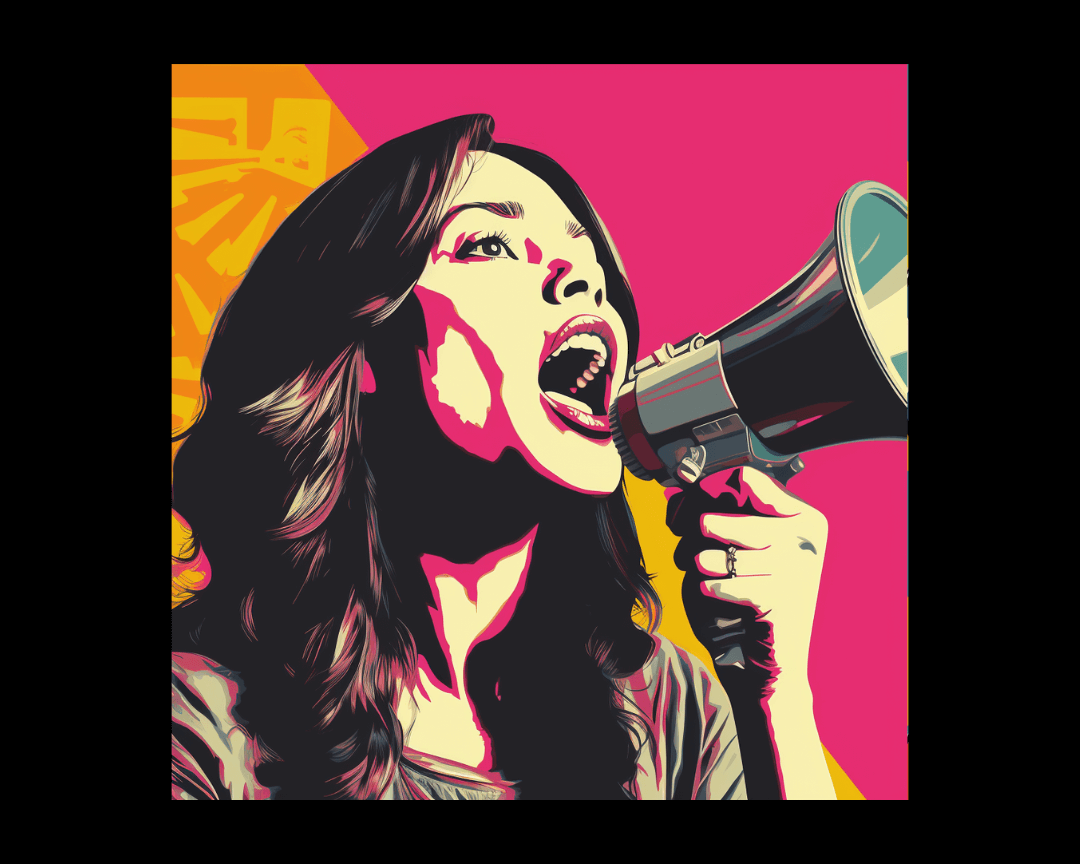Discovering Your Writing Style: Embracing Your Unique Voice
It is amazing how your mind works – a prompt comes up and instantly we are transported to a specific place and time. For me, when this subject of...
3 min read
 Joy Youell
:
Apr 11, 2023 8:45:19 AM
Joy Youell
:
Apr 11, 2023 8:45:19 AM

My favorite show in the whole wide world is the Great British Bake Off. Because I geek out over Bake Off, following the bakers is like 90% of my Instagram feed. WHICH MEANS, the omniscient (ha) algorithm almost exclusively serves me baking related content. Fun fact: I am personally an awful baker, although I try from time to time.
So. One of the accounts that’s been heavy in my Insta feed lately has been this lady who creates random cookie shapes and then decorates them two or three times. She’ll do this painstaking icing/piping work and make something cool. Then, she takes a knife or spatula or whatever and SCRAPES IT OFF. And does it again.
Kind of cringe because it’s obviously a lot of work for nothing. But as I sat here on Daylight Savings Time 2022 at 4am with nothing to do but work… I started a piece that made me think of this.
In other words: I was jabbing away, frankensteining a piece of content, and sat back and went, I gotta scrape this sucker and start over.
As a seasoned writer, I know this feeling. And I have a good instinct for when something is unsalvageable.
Do you?
Most writers outline. That’s helpful and will diminish the frequency of this “full dover” dynamic.
But even the right outline may go pear-shaped.
Here are some times when I think you just have to start from scratch.
You may come to the final paragraph of your piece and realize, I’m actually concluding something that A) doesn’t actually agree with my initial proposition or B) is a completely different point altogether. Why does this happen? You didn’t research enough (probably) or you found a source that said something compelling and unexpected.
As you write a piece of content, you may develop an argument (you should). As you go, you may come to realize different points need to be emphasized, or stumble upon a new argument that disproves what you were originally setting out to say. Sometimes you can flex and edit it, but most times I suggest a full rewrite.
This will more often happen when you write for clients or subject matter experts. Sometimes, you start out super casual and conversational and, by the end, realize you have to have more assertion or authority. It’s pretty irreversible and almost impossible to spot edit tone.
There are so many tiny micro impressions that sum up to a cohesive brand voice or tone. Difficult to reverse engineer once you’re nearly done. You will probably have to scrape it and restart.
This kind of relates to the first point, but is actually a different flaw. Sometimes, you will step back from a piece of content and realize: this doesn’t make sense.
This can very often occur AFTER a piece has been through rounds of edits. The too many executives in the editing room is a problem any professional writer knows. If you have more than two people touch a piece of work, it’s pretty much not going to be the same. Sometimes edits like this improve it. Sometimes they completely ruin it.
You’ll find meandering, total randomness, rabbit trails, and bolted in sections that don’t support the big idea. There are times when this gets too far gone and, like a collapsed spine (gosh sorry that’s gross) it can’t be rebuilt. Best to go back to the blueprint.
In your case, “client” may be CMO or CEO or something. If you’re a freelance or contract writer, it’s probably your client. Sometimes people just hate the work. We have this going on right now and, for us, it’s almost always about SEO writing. “Why did you word it that way?” Well your three hours of onboarding and two hours of collaborative editorial construction should have clued you into the fact that we were going to use SEO keywords… but okay. Not everyone gets it until they see it and they suddenly hate it.
This strong reaction is something you have to learn to 1) separate from your own identity and sense of self and 2) flex with. At the end of the day, everyone shares the same goal (or should) of getting great work out into the world. You may have to adjust expectations of what a piece of content can achieve if it is gutted of SEO keywords, for instance, but it probably definitely means a full rewrite in any case.
I think I said flex twice in this blog. The idea is extremely relevant here. As a professional writer, I can’t conceive of any context in which other people won’t have input into your work. I also can’t conceive of any context in which you will not, from time to time, create a disaster.
Learning to be objective and thick-skinned is hugely important to succeeding in this field. As a creative professional, you have an opportunity to develop frameworks for learning from your mistakes. And mistakes are much more valuable learning opportunities than successes, by the way. So, fail forward. Scrape that cookie. And, seriously, it’s going to be Syabira, right?

It is amazing how your mind works – a prompt comes up and instantly we are transported to a specific place and time. For me, when this subject of...

Just like athletes need to train physically, copywriters train mentally. Being someone who enjoys both physical and mental workouts, I discovered a...

At Hire a Writer, we have “Two Things Tuesday.” Every Tuesday, Joy comes up with a prompt that requires all of us to answer two things. I look...